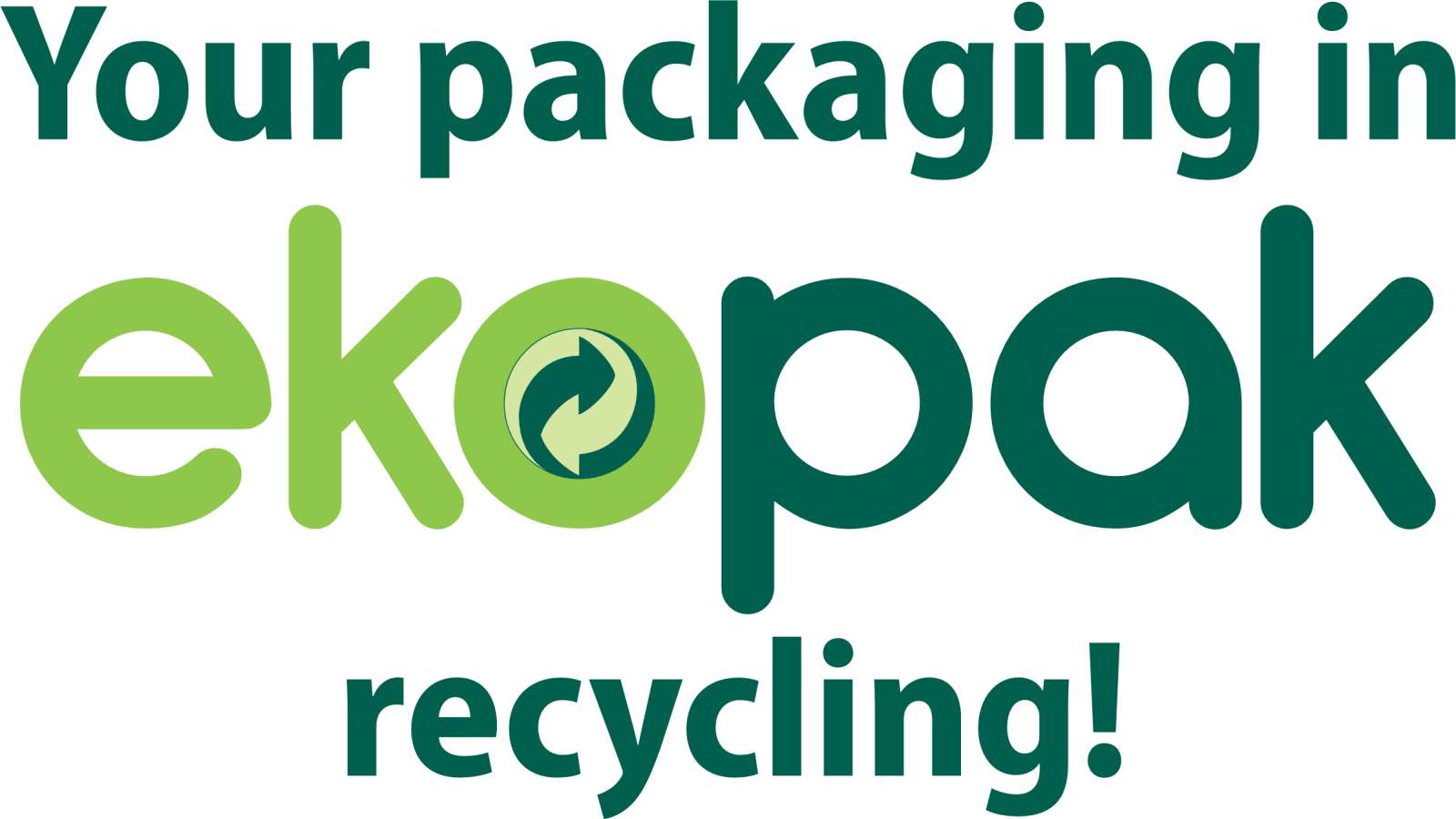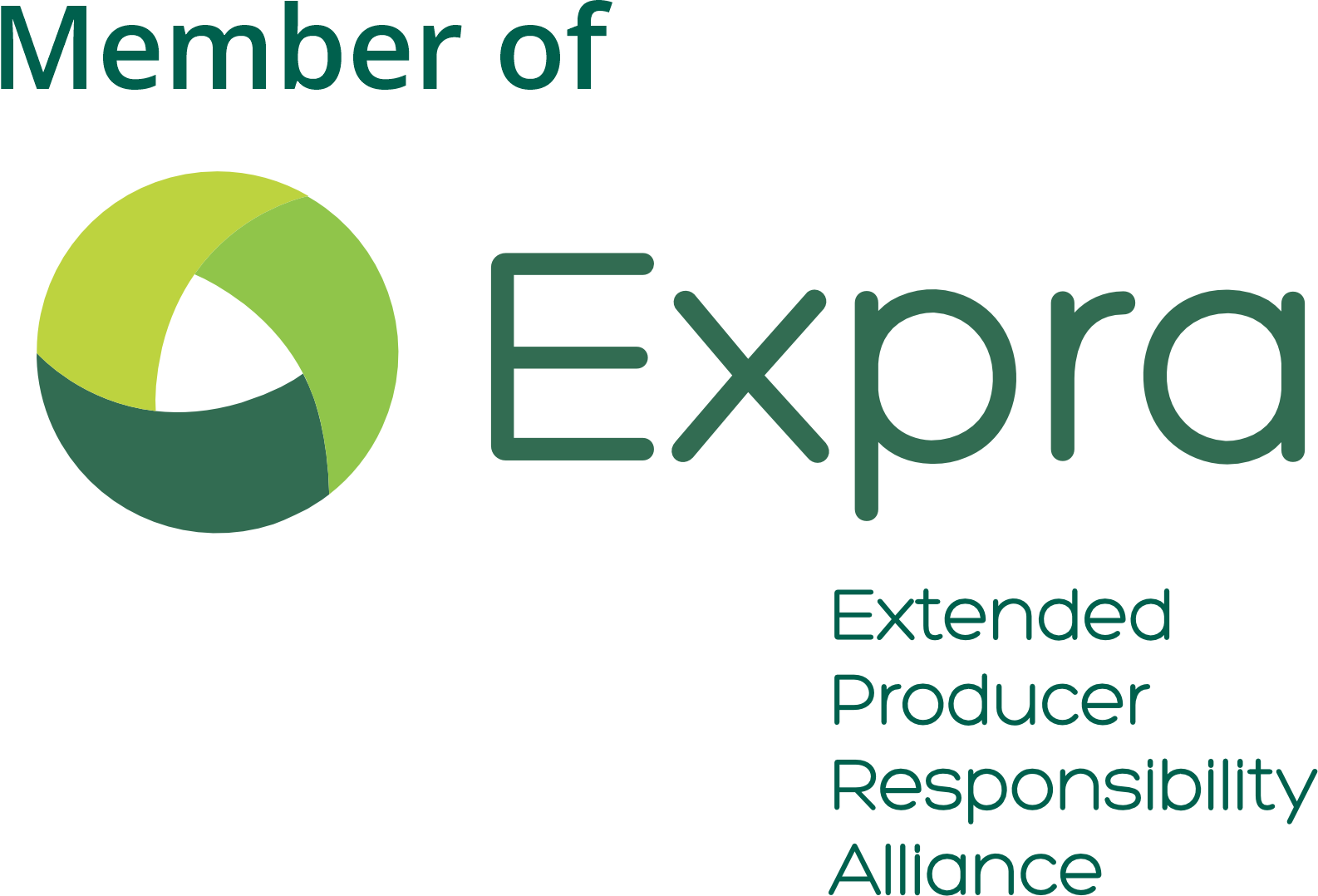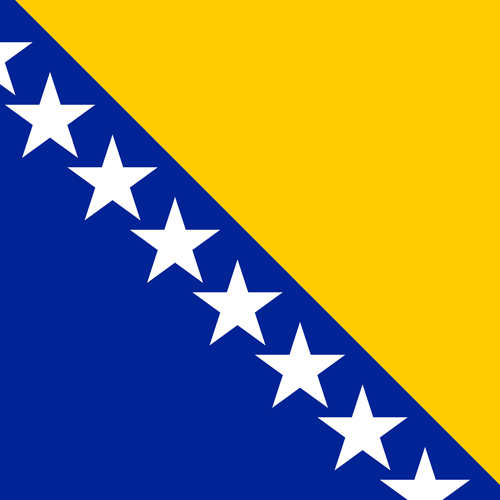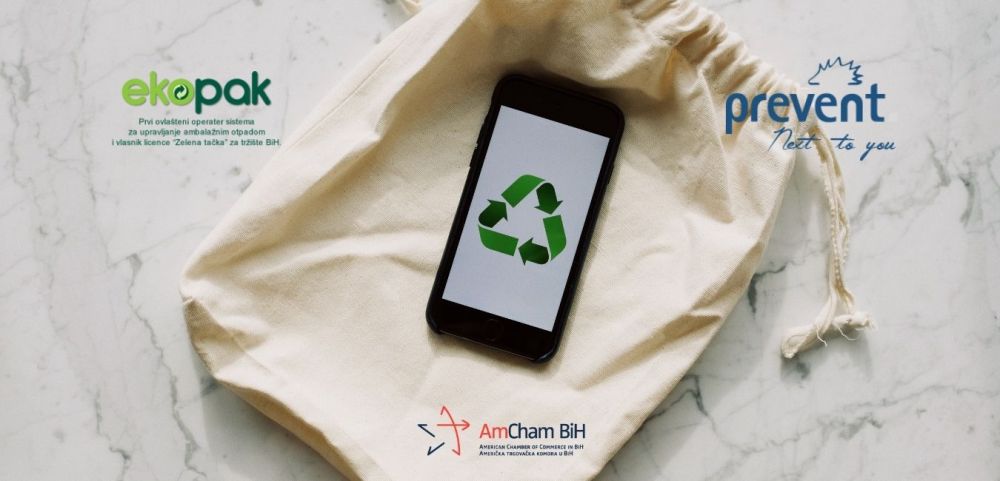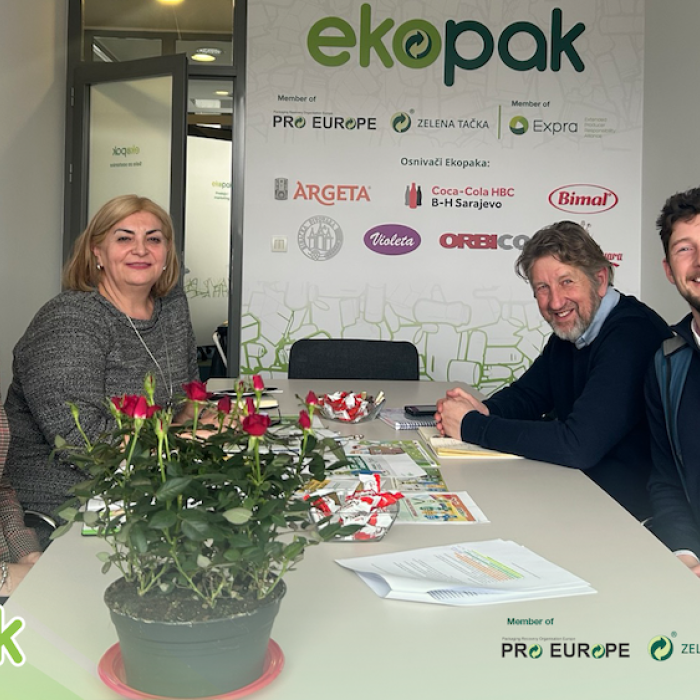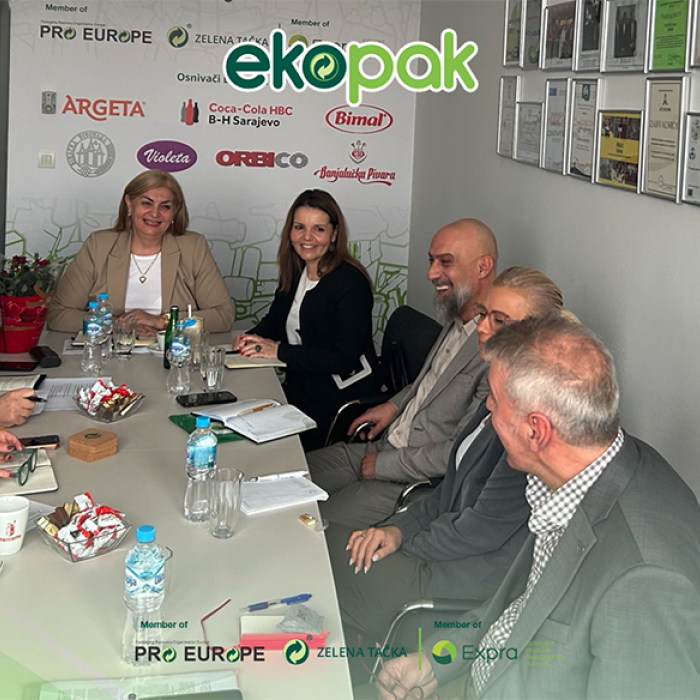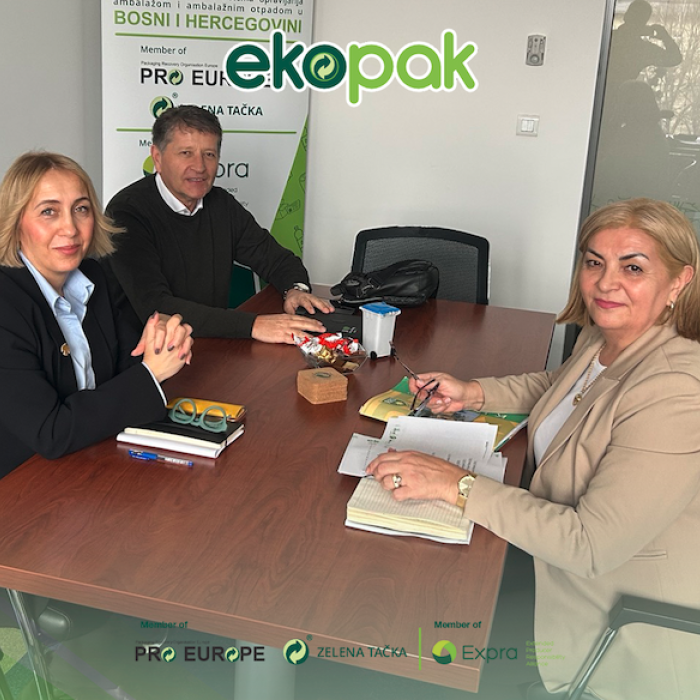Ekopak is one of the two members presented on behalf of AmCham Bosnia and Herzegovina within AmCham Europe in the segment of good examples and social responsibility practices
Ekopak has been a member of AmCham BiH for many years and actively participates in the work of the Health Care & Environment Committee, which provides significant support in overcoming the challenges that Ekopak faces on a daily basis. Our work has been recognized and presented within AmCham Europe in the segment of good examples and practices of social responsibility.
AmChams in Europe, an umbrella organization of 46 AmChams from 44 countries in partnership with the Washington, DC-based Center for International Private Enterprise (CIPE) have collected feedback from all AmChams about how American, European or local companies contribute to the development of local communities by contributing to the ESG factors. CIPE is an affiliate of the U.S. Chamber of Commerce and works with local partners around the world to craft business-driven solutions to socio-economic problems that affect millions of people.
We were honored to apply with two great examples from our two members: Ekopak and Prevent CEE (Prevent Fabrics).
Ekopak's core business is social responsibility - the establishment and development of the packaging waste recycling system in Bosnia and Herzegovina. For ten years now Ekopak is actively working on developing packaging waste recycling system accordant with the best European practices and for good of the whole community.
So far, we have delivered to recycling near 90.000 tons of packaging waste. If we covert it into trucks, that would be composition of about 5,000 trucks, lined up one after the other is the distance from Sarajevo to Konjic (approximately 60 kilometres). This amount of packaging not only that did not end up discarded in nature, nor it was disposed of in landfills, but it ended up in the recycling process where packaging waste was given new value.
They are also very involved in local communities where they raise the awareness of citizens, especially children. Ekopak is also active internationally, as a member of two roof European packaging organizations EXPRA and Pro Europe. And they make this possible only with four employees.
»As a proud member of AmCham, we gladly accepted the invitation and the opportunity to introduce other members to the work of Ekopak, whose main activity is social responsibility. I think we can be proud of all our achievements in terms of recycling packaging waste and raising citizens' awareness of the importance of recycling and environmental protection in general. If we take into account the conditions in our country in which Ekopak operates, and poorly developed waste sorting capacity and very limited waste recycling capacity, then our results become even more important. It is also important to us that AmCham, through the Health Care & Environment Committee, provides support to our work, which makes it much easier for us to successfully overcome the many challenges we face", they said.
Prevent Fabrics has embarked on a transformational journey of their entire value chain, moving from a linear to a circular business with the goal of working with reuse, recovery and recycling. One of the key aspects of this transformation is the transformation of our supply operations to enable roundabouts and eliminate waste. The circular approach is crucial for finding new and innovative ways to work with renewable recycled materials.
Prevent Fabrics is committed to using recycled yarns that will add value to our products by following environmentally friendly technologies in the field of textile production, and the inclusion of innovative, sustainable solutions in production technology. Investment in equipping production plants with innovative technical-technological solutions and process equipment, machines that enable us to deliver products with better quality, lower process costs and reduction of carbon footprint by 40%.
The share of recycled materials is 5.22% with a tendency to increase. We are currently in the development and approval phase of some items by customers with a 100% share of recycled materials. Modernization of lighting, replacing 80% of existing lighting fixtures with energy and light-technically efficient light bulbs, which increases energy efficiency of electricity use, improves conditions (lighting) in the work environment that are directly related to the satisfaction of all participants in the production process, and thus increasing production productivity, and reducing emissions.
Due to the need for a larger amount of water resources, in order to reduce the consumption of drinking water, poorer quality technological water from our own wells is used for technological and sanitary needs.
„Prevent Fabrics has embarked on a transformational journey of our entire value chain, moving from a linear to a circular business with the goal of working with reuse, recovery and recycling.Sustainability and Supply strategies, it sets out common commitment to social and environmental responsibility in our value chain“, said Aida Ganić, Prevent Fabrics Director.
